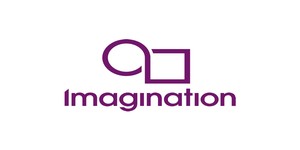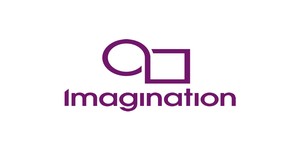Imagination Technologies seeks to sell MIPS
May 5, 2017 | 11:33
Companies: #apple #ensigma #imagination-technologies #mips

Imagination Technologies has announced it is to sell its MIPS subsidiary, in an apparent attempt to balance the books following the news that long-term licensee Apple was to begin using in-house graphics processor intellectual property (IP).
Founded in 1985 and propelled into the big time following a deal to provide the graphics technology for Sega's ill-fated Dreamcast games console, Imagination Technologies' best-known product is its PowerVR graphics IP. A common sight in mobile devices, PowerVR has long been at the heart of Apple's custom ARM system-on-chips (SoCs) powering the iPhone, iPad, iPod Touch, and Apple Watch product families. Early last month, however, Apple announced it was dropping Imagination Technologies' technology in favour of in-house IP, a move which put a £65 million hole in Imagination's balance sheet.
That's a hole Imagination needs to fill fast, even if its planned legal action against Apple - for, it claims, the likely but unproven use of Imagination patents, IP, and 'confidential information' in Apple's in-house GPU - should prove successful. As a short-term fix, then, the company is looking to divest itself of a pair of subsidiaries - beginning with general-purpose processor specialist MIPS.
Acquired by Imagination in 2012 for £60 million, MIPS is known for the processor architecture which bears its name. Since its launch, however, it has struggled to maintain market share: It is woefully under-represented in the modern mainstream and high-performance markets, has been all-but replaced by ARM in the mobile market, and ekes out a minor niche in embedded and networking arenas in competition with, again, ARM. As a result, it's perhaps little surprise to see Imagination looking to sell the division in favour of concentrating on its core competency of graphics technology.
Imagination Technologies has not announced how much it is seeking for MIPS, but it is likely to take a loss over its 2012 acquisition. The company has also confirmed it will sell its Ensigma subsidiary, a digital signal processing (DSP) specialist acquired by the company in 2000 for £5 million. Jointly, the two divisions represented 29 percent of Imagination's revenue as per its latest quarterly filing.
Founded in 1985 and propelled into the big time following a deal to provide the graphics technology for Sega's ill-fated Dreamcast games console, Imagination Technologies' best-known product is its PowerVR graphics IP. A common sight in mobile devices, PowerVR has long been at the heart of Apple's custom ARM system-on-chips (SoCs) powering the iPhone, iPad, iPod Touch, and Apple Watch product families. Early last month, however, Apple announced it was dropping Imagination Technologies' technology in favour of in-house IP, a move which put a £65 million hole in Imagination's balance sheet.
That's a hole Imagination needs to fill fast, even if its planned legal action against Apple - for, it claims, the likely but unproven use of Imagination patents, IP, and 'confidential information' in Apple's in-house GPU - should prove successful. As a short-term fix, then, the company is looking to divest itself of a pair of subsidiaries - beginning with general-purpose processor specialist MIPS.
Acquired by Imagination in 2012 for £60 million, MIPS is known for the processor architecture which bears its name. Since its launch, however, it has struggled to maintain market share: It is woefully under-represented in the modern mainstream and high-performance markets, has been all-but replaced by ARM in the mobile market, and ekes out a minor niche in embedded and networking arenas in competition with, again, ARM. As a result, it's perhaps little surprise to see Imagination looking to sell the division in favour of concentrating on its core competency of graphics technology.
Imagination Technologies has not announced how much it is seeking for MIPS, but it is likely to take a loss over its 2012 acquisition. The company has also confirmed it will sell its Ensigma subsidiary, a digital signal processing (DSP) specialist acquired by the company in 2000 for £5 million. Jointly, the two divisions represented 29 percent of Imagination's revenue as per its latest quarterly filing.

MSI MPG Velox 100R Chassis Review
October 14 2021 | 15:04








Want to comment? Please log in.